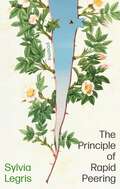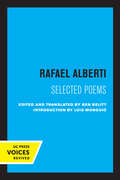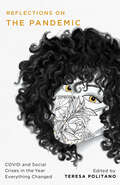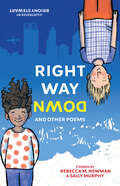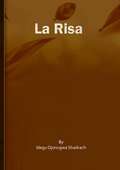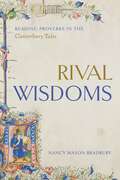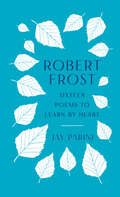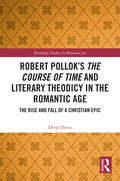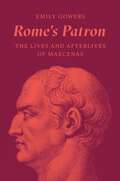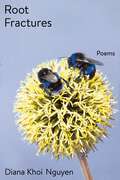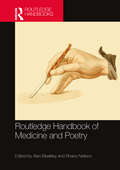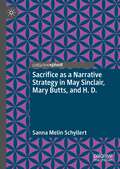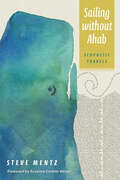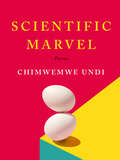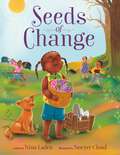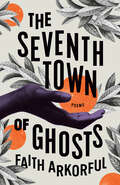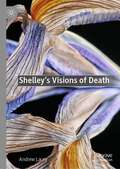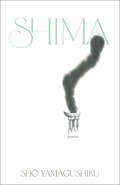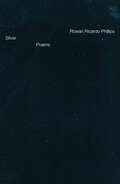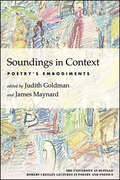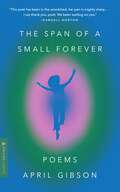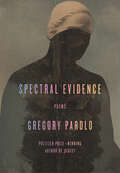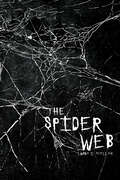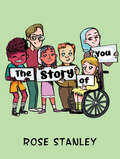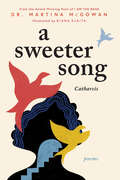- Table View
- List View
The Principle of Rapid Peering
by Sylvia LegrisSelf-seeding windis a wind of ever-replenishing breath.-from 'The Walk, or The Principle of Rapid Peering'The title of Sylvia Legris' melopoeic collection The Principle of Rapid Peering comes from a phrase the nineteenth-century ornithologist and field biologist Joseph Grinnell used to describe the feeding behaviour of certain birds. Rather than waiting passively for food to approach them, these birds live in a continuous mode of 'rapid peering'. Legris explores this rich theme of active observation through a spray of poems that together form a kind of almanac or naturalist's notebook in verse. Here is 'where nature converges with words,' as the poet walks through prairie habitats near her home in Saskatchewan, through lawless chronologies and mellifluous strophes of strobili and solstice. Moths appear frequently, as do birds and plants and larvae, all meticulously observed and documented with an oblique sense of the pandemic marking the seasons. Elements of weather, ornithology, entomology, and anatomy feed her condensed, inflective lines, making the heart bloom and the intellect dance.Features drawings by the poet.
Rafael Alberti: Selected Poems
by Rafael AlbertiThis title is part of UC Press's Voices Revived program, which commemorates University of California Press’s mission to seek out and cultivate the brightest minds and give them voice, reach, and impact. Drawing on a backlist dating to 1893, Voices Revived makes high-quality, peer-reviewed scholarship accessible once again using print-on-demand technology. This title was originally published in 1966.
Reflections on the Pandemic: COVID and Social Crises in the Year Everything Changed
by Patricia Akhimie Marc Aronson Ulla D. Berg Kimberly Camp Kelly-Jane Cotter David Dreyfus Adrienne Eaton Katherine Epstein Paul Falkowski Rigoberto González James Goodman David Greenberg Jonathan Scott Holloway James W. Hughes Amy Jordan Vikki S. Katz Mackenzie Kean Amir Lighty Revathi Machan Stephen Masaryk Yalidy Matos Susan Miller Yehoshua November Joyce Carol Oates Katherine Ognyanova Gregory Pardlo Steve Pikiell Benjamin Pukert Caridad Svich Mary E. O'Dowd Angelique Haugerud Leslieann Hobayan Stephanie Bonne Mark Doty Leah Falk Naomi Jackson Louis Masur Belinda McKeon David Orr Teresa PolitanoReflections on the Pandemic: COVID and Social Crises in the Year Everything Changed is a collection of essays, poems, and artwork that captures the raw energy and emotion of 2020 from the perspective of the Rutgers University community. The project features work from a diverse group of Rutgers scholars, students, staff, and alumni. Reflecting on 2020 from a number of perspectives – mortality, justice, freedom, equality, democracy, family, health, love, hate, economics, history, medicine, science, social justice, the environment, art, food, sanity – the book features contributions by Evie Shockley, Joyce Carol Oates, Naomi Jackson, Ulla Berg, Grace Lynne Haynes, Jordan Casteel, and President Jonathan Holloway, among others. This book, through its rich and imaginative storytelling at the intersection of scholarly expertise and personal narrative, brings readers into the hearts and minds of not just the Rutgers community but the world. Contributors include: Patricia Akhimie, Marc Aronson, Ulla D. Berg, Stephanie Bonne, Stephanie Boyer, Kimberly Camp, Jordan Casteel, Kelly-Jane Cotter, Mark Doty, David Dreyfus, Adrienne E. Eaton, Katherine C. Epstein, Leah Falk, Paul G. Falkowski, Rigoberto González, James Goodman, David Greenberg, Angelique Haugerud, Grace Lynne Haynes, Leslieann Hobayan, Jonathan Holloway, James W. Hughes, Naomi Jackson, Amy Jordan, Vikki Katz, Mackenzie Kean, Robert E. Kopp, Christian Lighty, Stephen Masaryk, Louis P. Masur, Revathi V. Machan, Yalidy Matos, Belinda McKeon, Susan L. Miller, Yehoshua November, Joyce Carol Oates, Mary E. O’Dowd, Katherine Ognyanova, David Orr, Gregory Pardlo, Steve Pikiell, Teresa Politano, en Purkert, Nick Romanenko, Evie Shockley, Caridad Svich, and Didier William.
Right Way Down: A middle-reader poetry collection
by Sally MurphyStand on your head with Sally Murphy, explode some dynamite with Cristy Burne or shoot some hoops with Cheryl Kickett-Tucker. Grow a poettree with Meg McKinlay or curl up next to your cat with Amber Moffat and watch a bit of Stink-o-Vision with James Foley. These and loads more poems by Australian poets are there to discover in Right Way Down. With striking illustrations by Briony Stewart, these poems will have you laughing, thinking, and playing with words – whichever way you read them.
La Risa
by Idegu Ojonugwa ShadrachLa risa se compone de cuatro poemas épicos: El futuro: este poema se centró en un grupo divino que utilizó sus planes divinos para mejorar a la humanidad en su nación con el poder del Creador de la humanidad. Esto ayuda a dar crédito a las ideas y esfuerzos colectivos de un grupo que ayuda a su nación a superar las bárbaras transacciones de poder por parte de notorias personalidades conocedoras. El mensaje del Bosque: señala factores y soluciones que se inician entre las actividades ignorantes de los mortales e inmortales que no permiten la orientación divina de los seres inmortales. Los antepasados ganan protagonismo y mayores posibilidades de vivir si los mortales promueven y toman parte de sus costumbres en la tierra; esto exige una buena relación entre los humanos y sus antepasados. En los libros dos y cuatro, todos los poemas señalan las diferencias en la humanidad y cómo se pueden manejar las diferencias sin producir resultados negativos. Además, se señalan los desarrollos humanos tangibles que permiten preservar el dominio entre otras criaturas.
Rival Wisdoms: Reading Proverbs in the Canterbury Tales
by Nancy Mason BradburyIn this elegantly written study, Nancy Mason Bradbury situates Chaucer’s last and most ambitious work in the context of a zeal for proverbs that was still rising in his day. Rival Wisdoms demonstrates that for Chaucer’s contemporaries, these tiny embedded microgenres could be potent, disruptive, and sometimes even incendiary.In order to understand Chaucer’s use of proverbs and their reception by premodern readers, we must set aside post-Romantic prejudices against such sayings as prosaic and unoriginal. The premodern focus on proverbs conditioned the literary culture that produced the Canterbury Tales and helped shape its audience’s reading practices. Aided by Thomas Speght’s notations in his 1602 edition, Bradbury shows that Chaucer acknowledges the power of the proverb, reflecting on its capacity for harm as well as for good and on its potential to expand and deepen—but also to regulate and constrict—the meanings of stories. Far from banishing proverbs as incompatible with the highest reaches of poetry, Chaucer places them at the center of the liberating interpretive possibilities the Canterbury Tales extends to its readers.Revelatory and persuasive, this book will appeal to scholars and students of medieval and early modern English literature as well as those interested in proverbs and the Canterbury Tales.
Robert Frost: Sixteen Poems to Learn by Heart
by Robert Frost Jay PariniCelebrate Robert Frost's 150th birthday with a deluxe keepsake edition featuring 16 of his greatest poems—with brilliant essays highlighting his special genius and the power of memorization to unlock the magic of his languageDuring a public reading Robert Frost was once asked why he so frequently recited his poems from memory. With typical wit, he replied: &“If they won&’t stick to me, I won&’t stick to them.&” Remarkably among the modern poets, his poems &“stick&” to the reader: "Mending Wall," with its famous invocation of the rural maxim "Good fences make good neighbors""The Road Not Taken," about the beguiling possibilities of life"Birches," which reminds us that "One could do worse than be a swinger of birches"Stopping by Woods on a Snowy Evening," with its unforgettable final line: "And miles to go before I sleep."Here, poet and Frost biographer Jay Parini presents these and 12 other Frost poems to learn by heart. In short accompanying commentaries, Parini illuminates the stylistic and imaginative features of each of the poems, drawing in biographical material from Frost&’s life to provide further context. &“The goal of this little book is to encourage readers to slow down—to listen to Frost&’s words and phrases, to locate their deepest rhythms, and hear the tune of each poem as it unfolds. . . . Memorizing a poem can teach us much about a poem&’s structure and argument, and about the resonance of particular words. And best of all, memorization makes a poem part of our inner lives. Once committed to memory, a poem is available to us for recall at any time—and the occasions for remembering it will make themselves known to us. It isn&’t something we have to work at.&” Anyone who has read and loved Frost&’s poetry will want to own and treasure this little gift edition. Those reading Frost for the first time or those wishing to become better acquainted with one of America&’s greatest poets will not find a better, more insightful guide than Jay Parini.
Robert Pollok’s The Course of Time and Literary Theodicy in the Romantic Age: The Rise and Fall of a Christian Epic (Routledge Studies in Romanticism)
by Deryl DavisThis book explores the contexts and reception history of Robert Pollok’s religious epic The Course of Time (1827), one of the best- selling long poems of the nineteenth century, which has been almost entirely forgotten today. Widely read in the United States and across the British Empire, the poem’s combination of evangelical Calvinism, High Romanticism, and native Scottishness proved irresistible to many readers. This monograph traces the poem’s origins as a defense of Biblical authority, divine providence, and religious orthodoxy (against figures like Byron and Joseph Priestley) and explores the reasons for The Course of Time’s enormous, decades- long popularity and later precipitous decline. A close reading of the poem and an examination of its reception history offers readers important insights into the dynamic relationship between religion and wider culture in the nineteenth century, the uses of literature as a vehicle for theological argument and theodicy, and the important but often overlooked role that religion played in literary— and, particularly, Scottish— Romanticism. This work will appeal to scholars of religious history, literary history, Evangelicalism, Romanticism, Scottish literature, and nineteenth- century culture.
Rome's Patron: The Lives and Afterlives of Maecenas
by Emily GowersThe story of Maecenas and his role in the evolution and continuing legacy of ancient Roman poetry and cultureAn unelected statesman with exceptional powers, a patron of the arts and a luxury-loving friend of the emperor Augustus: Maecenas was one of the most prominent and distinctive personalities of ancient Rome. Yet the traces he left behind are unreliable and tantalizingly scarce. Rather than attempting a conventional biography, Emily Gowers shows in Rome’s Patron that it is possible to tell a different story, one about Maecenas’s influence, his changing identities and the many narratives attached to him across two millennia.Rome’s Patron explores Maecenas’s appearances in the central works of Augustan poetry written in his name—Virgil’s Georgics, Horace’s Odes and Propertius’s elegies—and in later works of Latin literature that reassess his influence. For the Roman poets he supported, Maecenas was a mascot of cultural flexibility and innovation, a pioneer of gender fluidity and a bearer of imperial demands who could be exposed as a secret sympathizer with their own values. For those excluded from his circle, he represented either favouritism and indulgence or the lost ideal of a patron in perfect collaboration with the authors he championed.As Gowers shows, Maecenas had and continues to have a unique cachet—in the fantasies that still surround the gardens, buildings and objects so tenuously associated with him; in literature, from Ariosto and Ben Johnson to Phillis Wheatley and W. B. Yeats; and in philanthropy, where his name has been surprisingly adaptable to more democratic forms of patronage.
Root Fractures: Poems
by Diana Khoi Nguyen*One of LitHub&’s Poetry Books to Read in 2024* *One of The Millions&’s Must Read Poetry Books of Winter 2024* National Book Award finalist Diana Khoi Nguyen&’s second poetry collection, a haunting of a family&’s past upon its present, and a frank reckoning with how loss and displacement transform mothers and daughters across generations.In Root Fractures, Diana Khoi Nguyen excavates the moments of rupture in a family: a mother who was forced underground after the Fall of Saigon, a father who engineered a new life in California as an immigrant, a brother who cut himself out of every family picture before cutting himself out of their lives entirely. And as new generations of the family come of age, opportunities to begin anew blend with visitations from the past. Through poems of disarming honesty and personal risk, Nguyen examines what takes root after a disaster and how we can make a story out of the broken pieces of our lives. As Terrance Hayes writes, &“&‘There is nothing that is not music&’ for this poet. Poetry is found in the gaps, silences, and ruptures of history.&” This astonishing second collection renders poetry into an act of kintsugi, embellishing what is broken in a family&’s legacy so that it can be seen in a new light.
Routledge Handbook of Medicine and Poetry
by Alan Bleakley Shane NeilsonThe Routledge Handbook of Medicine and Poetry draws on an international selection of authors to ask what the cultures of poetry and medicine may gain from reciprocal critical engagement. The volume celebrates interdisciplinary inquiry, critique, and creative expansion with an emphasis upon amplifying provocative and marginalized voices.This carefully curated collection offers both historical context and future thinking from clinicians, poets, artists, humanities scholars, social scientists, and bio-scientists who collectively inquire into the nature of relationships between medicine and poetry. Importantly, these can be both productive and unproductive. How, for example, do poet-doctors reconcile the outwardly antithetical approaches of bio-scientific medicine and poetry in their daily work, where typically the former draws on technical language and associated thinking and the latter on metaphors? How does non-narrative lyrical poetry engage with narrative-based medicine? How do poets writing about medicine identify as patients? Central to the volume is the critical investigation of the consequences of varieties of medical pedagogy for clinical practice.Presenting a vision of how poetic thinking might form a medical ontology this thought-provoking book affords an essential resource for scholars and practitioners from across medicine, health and social care, medical education, the medical and health humanities, and literary studies.
Sacrifice as a Narrative Strategy in May Sinclair, Mary Butts, and H. D.
by Sanna Melin SchyllertThis book explores sacrifice as a narrative theme and a stylistic strategy in works by May Sinclair, Mary Butts and H. D. It argues that the modernist experiment with pronoun use informs the treatment of acts of sacrifice in the texts, understood both as acts of self-renunciation and as ritual performance. It also suggests that sacrifice, if the conditions are right, can serve as the structure upon which a cohesive community might be built. The book offers in-depth analyses of the three authors and their works, deftly dissecting the modernist narrative experiment to show that it was by no means limited — it was a means by which to approach a wide range of stories and materials.
Sailing without Ahab: Ecopoetic Travels
by Steve MentzJourney through uncharted literary waters and explore Melville’s epic in bold new lightCome sail with I.We’re not taking the same trip, though you might recognize the familiar course. This time, the Pequod’s American voyage steers its course across the curvature of the Word Ocean without anyone at the helm. We are leaving one man and his madness on shore. Our ship overflows with glorious plurality—multiracial, visionary, queer, conflicted, polyphonic, playful, violent. But on this voyage something is different. Today we sail headless without any Captain. Instead of binding ourselves to the dismasted tyrant’s rage, the ship’s crew seeks only what we will find: currents teeming with life, a blue-watered alien globe, toothy cetacean smiles from vasty deeps. Treasures await those who sail without.This cycle of one hundred thirty-eight poems—one for each chapter in Moby-Dick, plus the Etymology, Extracts, and Epilogue—launches into oceanic chaos without the stabilizing mad focus of the Nantucket captain. Guided by waywardness and curiosity, these poems seek an alien ecopoetics of marine depths, the refraction of light, the taste of salt on skin. Directionless, these poems reach out to touch oceanic expanse and depth. It’s not an easy voyage, and not a certain one. It lures you forward. It has fixed its barbed hook in I.Sailing without means relinquishing goals, sleeping at the masthead, forgetting obsessions. I welcome you to trace wayward ways through these poems. Read them any way you can—back to front, at random, sideways, following the obscure promptings of your heart. It’s the turning that matters. It’s a blue wonder world that beckons.
Scientific Marvel: Poems
by Chimwemwe UndiMarked by rhythmic drive, humour, and surprise, Undi’s poems consider what is left out from the history and ongoing realities of Winnipeg, Manitoba. Firmly grounded in the local, the arresting poems in Chimwemwe Undi’s debut collection, Scientific Marvel, are preoccupied with Winnipeg in the way a Winnipegger is preoccupied with Winnipeg, the way a poet might be preoccupied with herself: through history and immigration; race and gender; anxieties and observation. Marked by rhythmic drive, humour and surprise, Undi’s poems consider what is left out from the history and ongoing realities of Winnipeg, Manitoba, and the west. Taking its title from a beauty school in downtown Winnipeg that closed in 2017 after nearly 100 years of operation, Scientific Marvel approaches the prairies from the point of view of a person who is often erased from the prairies’ idea of itself. “I mean my country the way / my country means my country / and what else is there to say? / I am bad and brown / and trying. Nothing here / belongs to me or could / or ever will.” This is poetry that touches on challenging topics—from queerness and colonialism to racism, climate rage, and decolonization, while never straying far from specific lived experience, the so-called ‘smaller’ questions: about self, art, dance parties and pop culture, relationships and love.
Seeds of Change
by Nina LadenFrom award-winning, bestselling author Nina Laden comes a poetic picture book about having the courage and resilience to plant "seeds" that will improve ourselves and our community.Sow seeds of strength, Ride out the storm. Sow seeds of compassion, Make hearts warm. After seeing an area in her local, Madagascar community devastated from drought, a young girl gets inspired. She should plant a garden—what could be more perfect? She gathers her friends, cooperates to make a plan, and gets to work. But when things go devastatingly wrong, what can they do? It takes a lot of courage, but with the support of her whole community on her side, this girl won't give up. One way or another, she'll sow the seeds of change she's been dreaming of. With sweet, lush art from Sawyer Cloud, this lyrical picture book about making the effort to invest in the future of ourselves and our community teaches an invaluable lesson about having the patience to see that, in time, effort will blossom into a more peaceful, loving, and accepting world.
The Seventh Town of Ghosts: Poems
by Faith ArkorfulCBC Poetry Prize finalist and National Magazine Award honoree Faith Arkorful&’s breathtaking, surpassingly thoughtful debut collection of poems.Hauntings form the canopy of The Seventh Town of Ghosts. These titular towns, centred in yesterdays, tomorrows, and the ongoing, lead to a special kind of singing: songs to the reader who wrestles with existence, the unsure peace within family, and the often-tense interdependence of life.Here, discernment is ever-present, guided by Faith Arkorful&’s insights on not only the ravages of the state and the police upon the Black family and life at large, but also on a kaleidoscope of connections—sisterhood, daughterhood, kinship, solitude, death, romance—and how tenderness, chosen and repeated, can shield against life&’s blows. These towns also enchant, shape-lifting through humour, irony, and the small refractions of language where Arkorful guides us through the fault lines and the undertow, in the form of fruit, island volcanoes, Formula 1, and the expansive hum of life.This poet-as-sojourner bears careful, caring witness, her attention reserved not only for her living and her dead but hyphenated two-fold by the fragile things and the lasting things. These poems remind us of what contours our mysterious and fleeting presence on Earth.
Shelley's Visions of Death
by Andrew LaceyThis book provides the first modern, in-depth analysis of Percy Bysshe Shelley’s engagement with the phenomenon of death. It argues that, for Shelley, this most nebulous of realities represents, first and foremost, possibility: Shelley’s poetic writings on death are both numerous and varied, presenting his reader, with differing degrees of confidence over the course of his brief but brilliant career, with several key visions of what death might be or actually is. Shelley’s Visions of Death stresses the seldom-appreciated fact that death was one of Shelley’s most enduring preoccupations, and also demonstrates the poet’s power to imagine, with startling variety, that which lies beyond the boundaries of experience.
shima: Poems
by sho yamagushikuA vivid, expansive vision of intergenerational witness and repair.The village is tilting on its axis. It is turning. All its organs are spilling into the bay.shima is a mosaic of the emotional, psychic, and generational toll that exile from a pillaged culture impresses on a poet and his community. Come to haunt yamagushiku&’s practice of ancestor veneration are photographs and a narrative that spans his own life and a mythic parallel filled with a voice as spare as it is present, yearning as it is precise. The poet says, I am taking the sharpest stick and poking the root ancestor. I am insisting that if he awakens I will have something useful to say.Speaking through a cultural amnesia collected between a sunken past and a sensed, ghostly-dreamed future, shima anchors this interrogation of the relationship between father and son in the fragile connective tissue of memory where the poet&’s homeland is an impossible destination.
Silver: Poems
by Rowan Ricardo PhillipsRowan Ricardo Phillips’s fourth collection is a book as lustrous as the metal of its title. This beautiful, slender collection—small and weighted like a coin—is Rowan Ricardo Phillips at his very best. These luminous, unsparing, dreamlike poems are as lyrical as they are virtuosic. “Not the meaning,” Phillips writes, “but the meaningfulness of this mystery we call life” powers these poems as they conjure their prismatic array of characters, textures, and moods. As it reverberates through several styles (blank verse, elegy, terza rima, rhyme royal, translation, rap), Silver reimagines them with such extraordinary vision and alluring strangeness that they sound irrepressibly fresh and vibrant. From beginning to end, Silver is a collection that reflects Phillips’s guiding principle—“part physics, part faith, part void”—that all is reflected in poetry and poetry is reflected in all.This is work that brings into acute focus the singular and glorious power of poetry in our complex world.
Soundings in Context: Poetry's Embodiments (The University at Buffalo Robert Creeley Lectures in Poetry and Poetics)
by Judith Goldman James MaynardSoundings in Context brings together the second and third University at Buffalo Robert Creeley Lectures in Poetry and Poetics by the renowned literary and textual scholar Jerome McGann, and the innovative, prolific Canadian poet, essayist, and novelist Lisa Robertson, respectively. The volume's first half presents McGann's "Reading (I Mean Articulating) Poetry, a Multi-Player Game," with responses by Nikolaus Wasmoen and Steve McCaffery; the second presents Lisa Robertson's "Dous Chantar: Refrain for a Nightingale," with responses by Shannon Maguire and Liz Howard. Initially given at different moments and since revised, the pieces considered in the lectures range widely, moving from the Romantics and medieval troubadour poetry to T. S. Eliot, Jackson Mac Low, Jacques Rouboud, and far beyond. Still, they are collectively concerned with questions of voice, recitation, and reception in different contexts; with sonic patterning and its modes of significance; and with foregrounding an embodied experience of oral and written language as opposed to its interpretation. McGann, Robertson, and their interlocutors all propose affective, pragmatic approaches to poetry that allow it to surface as materially formative, alive and lived. Reading their contributions together offers an opportunity to see how these values present themselves in differing cultures of poetic scenography across space and time.
The Span of a Small Forever: Poems
by April GibsonWith echoes of Audre Lorde’s The Cancer Journals and Susan Sontag’s Illness as Metaphor, an extraordinary debut collection from a prize-winning poet that chronicles a Black woman’s journey through disability, the byzantine healthcare system, life-giving, taking, and sacrifice.With breathtaking lyricism and a vulnerability that pierces the heart, April Gibson journeys through the emotional abysses, the daily pleasures, the frustrations, and the joys of being a Black woman living with chronic illness. Gibson offers a unique perspective on “the body,” viewing disability and healthcare through both feminist and socio-economic lenses filtered by race and faith. Through gorgeous sensory language that migrates memories, from carefree innocence to the ravages formed in its absence, Gibson bears witness to grief, courage, and resistance to redefine herself on her own terms. Gibson presents her body as a “looking glass” that re-envisions illness, womanhood, motherhood, religious relics and collective loss through her physicality, through her lamenting, through her unearthing, reckoning and rebirth. Not only do we see her, but see the “we” in her. The Span of a Small Forever is both testimony and transformation—heart-shattering in its honesty, it ultimately offers us transcendent beauty, nourishment, and the strength we need to go on in our lives.
Spectral Evidence: Poems
by Gregory PardloA powerful meditation on Blackness, beauty, faith, and the force of law, from the beloved award-winning author of Digest and Air TrafficElegant, profound, and intoxicating—Spectral Evidence, Gregory Pardlo&’s first major collection of poetry after winning the Pulitzer Prize for Digest, moves fluidly among considerations of the pro-wrestler Owen Hart; Tituba, the only Black woman to be accused of witchcraft during the Salem witch trials; MOVE, the movement and militant separatist group famous for its violent stand-offs with the Philadelphia Police Department (&“flames rose like orchids . . . / blocks lay open like egg cartons&”); and more.At times cerebral and at other times warm, inviting and deeply personal, Spectral Evidence compels us to consider how we think about devotion, beauty and art; about the criminalization and death of Black bodies; about justice—and about how these have been inscribed into our present, our history, and the Western canon: &“If I could be / the forensic dreamer / . . . / . . . my art would be a mortician&’s / paints.&”
The Spider Web
by Lubna E. AtallahA fertile space for the imagination Between abortive romances, disappointment vs. hope, and past vs. present, The Spider Web taps on your experiences and inspires you to live your way; either get stuck in the spider web or cut your way through it.
The Story of You
by Rose StanleyIt’s the VERY BEST story, It’s the story of you, And no-one can tell it Quite like YOU do! Your story is your treasure. It is what makes you unique. Like a book you can’t stop reading, it gets more and more interesting as you go along. All the ups and downs, twists and turns work together to shape a wonderful story which is not the same as anyone else’s. The more you keep breathing, keep living, the more your story comes together!
A Sweeter Song: Catharsis
by Martina McGowanThe sweetest song is one that speaks to the heart of universal human experience.FROM THE AUTHOR OF NAUTILUS AWARD WINNER & BCALA 2022 HONOR POETRY AWARD WINNER I AM THE RAGEExperience the rich tapestry of life through the vibrant poetry of A Sweeter Song by Dr. Martina McGowan. This powerful collection offers a unique perspective on the lives of people of color, women, and other marginalized and oppressed people, highlighting the struggles and triumphs that shape our collective human experience.With each verse, Dr. McGowan brings to life the complex emotions and perspectives that make us who we are, inviting readers to see the world in a new light.From the joys of love and family to the pain of loss and injustice, A Sweeter Song is a celebration of the human spirit in all its diversity.For those who are moved by I am the Rage, Dr. McGowan's first award-winning poetry collection, and the seminal works of Amanda Gorman and Maya Angelou, Dr. McGowan's newest collection offers an extraordinary glimpse into the Black experience across a range of topics. The perfect poetry gift book for women and men, A Sweeter Song is a must-read for anyone seeking to connect with the universal issues that touch us all.Praise for I am the Rage:"I am The Rage is a timely look at generations of trauma and inaction."—Bustle"A raw and searing examination of America's reckoning with racism."—POPSUGAR"These poems reverberate with the powerful grief of a woman who speaks the vulnerability of living in a world where being black makes you a target."—Pamala A. Thiede, Amazon customer review
